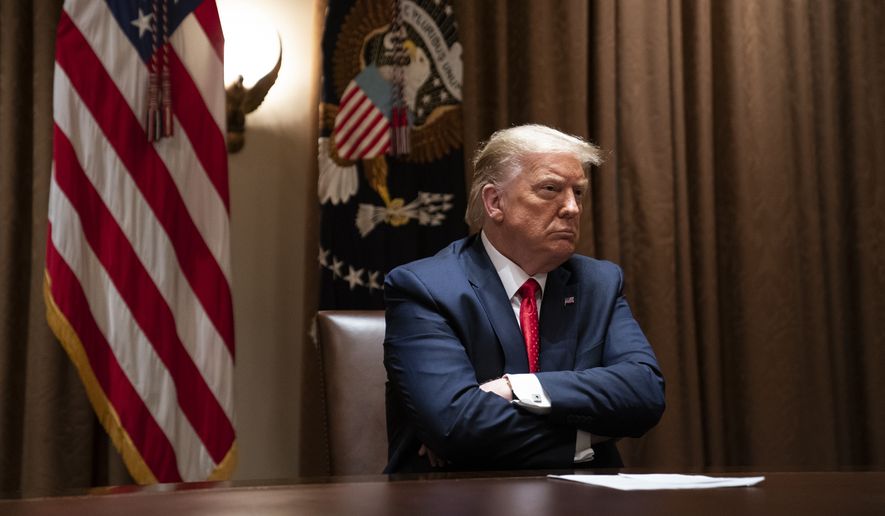President Trump’s veto of the annual defense policy bill was shot down Friday when the Senate overwhelmingly voted to reject the president’s move, marking the first veto override of Mr. Trump’s tenure.
In a New Year’s Day vote, senators obtained the necessary two-thirds majority by an 81-13 margin to reject Mr. Trump’s veto and enact the legislation that sets military spending levels and defense policy.
The Senate approved the National Defense Authorization Act (NDAA) this month with the necessary two-thirds support, but the legislation was vetoed by Mr. Trump, who cited its failure to repeal legal protections for social media giants, plus its plan to rename military bases that are tributes to Confederates, and other objections.
Despite receiving bipartisan support from both the House and the Senate, the NDAA hit a procedural snag this week when Democrats moved to delay the defense legislation vote until the Senate held a vote to increase coronavirus stimulus checks to $2,000 — an increase backed by Mr. Trump and was approved by the House this week.
Sen. Jack Reed, the top Democrat on the Senate Armed Services Committee, called Mr. Trump’s veto decision “irresponsible” and that he “badly miscalculated” his resistance to language to rename military bases that honor former leaders of the Confederacy.
“President Trump repeatedly attempted to mislead the American public about what’s in this bill or what it does,” the Rhode Island Democrat said. “It’s a real shame President Trump failed to put forward a strategy to do so over the last four years. But I hope the Biden Administration will do more to end conflict and bring sustainable peace.”
“Today, the Senate sent a strong message of support to our troops by voting to make the Fiscal Year 2021 National Defense Authorization Act law,” Sen. James Inhofe, chairman of the committee, said. “I’m glad the Senate voted once again, by a wide bipartisan margin, for this bill — the most important bill we do each and every year, for 60 years in a row.”
This year, the $740.5 billion defense legislation includes a number of attractive features for lawmakers, including a troop pay raise, funding for new weapons systems, new policies to deter China and Russia, and increases in housing protections and standards for military families.
It also rescinds Mr. Trump’s emergency declaration to obtain funding for the Mexican border wall, puts at least a temporary hold on plans to draw down more troops in Afghanistan, Germany and South Korea, and orders a Government Accountability Office study of U.S. backing for Saudi Arabia in Yemen’s civil war.
In his four years in the White House, Mr. Trump has issued nine vetoes including this year’s NDAA. But until Friday, just 19 days before Inauguration Day, none of his vetoes were successfully overturned by Congress.
In 2019, lawmakers made two attempts to override a Trump veto, one over the U.S.’ support for Saudi Arabia in Yemen and the other over construction of the southern border wall. Neither was successful.
Unlike previous attempts, the veto override vote has seen significantly more backing from Republicans — playing a key role in the legislation’s likely enactment.
A handful of top Republican allies of Mr. Trump backed the override, including Senate Majority Leader Mitch McConnell of Kentucky, Mr. Inhofe of Oklahoma, Sens. John Thune of South Dakota, Roy Blunt of Missouri, Dan Sullivan of Alaska, Mike Rounds of South Dakota, John Boozman of Arkansas and Susan Collins of Maine.
• Lauren Toms can be reached at lmeier@washingtontimes.com.




Please read our comment policy before commenting.